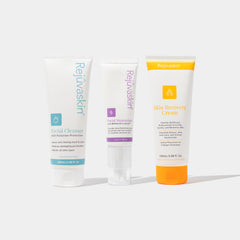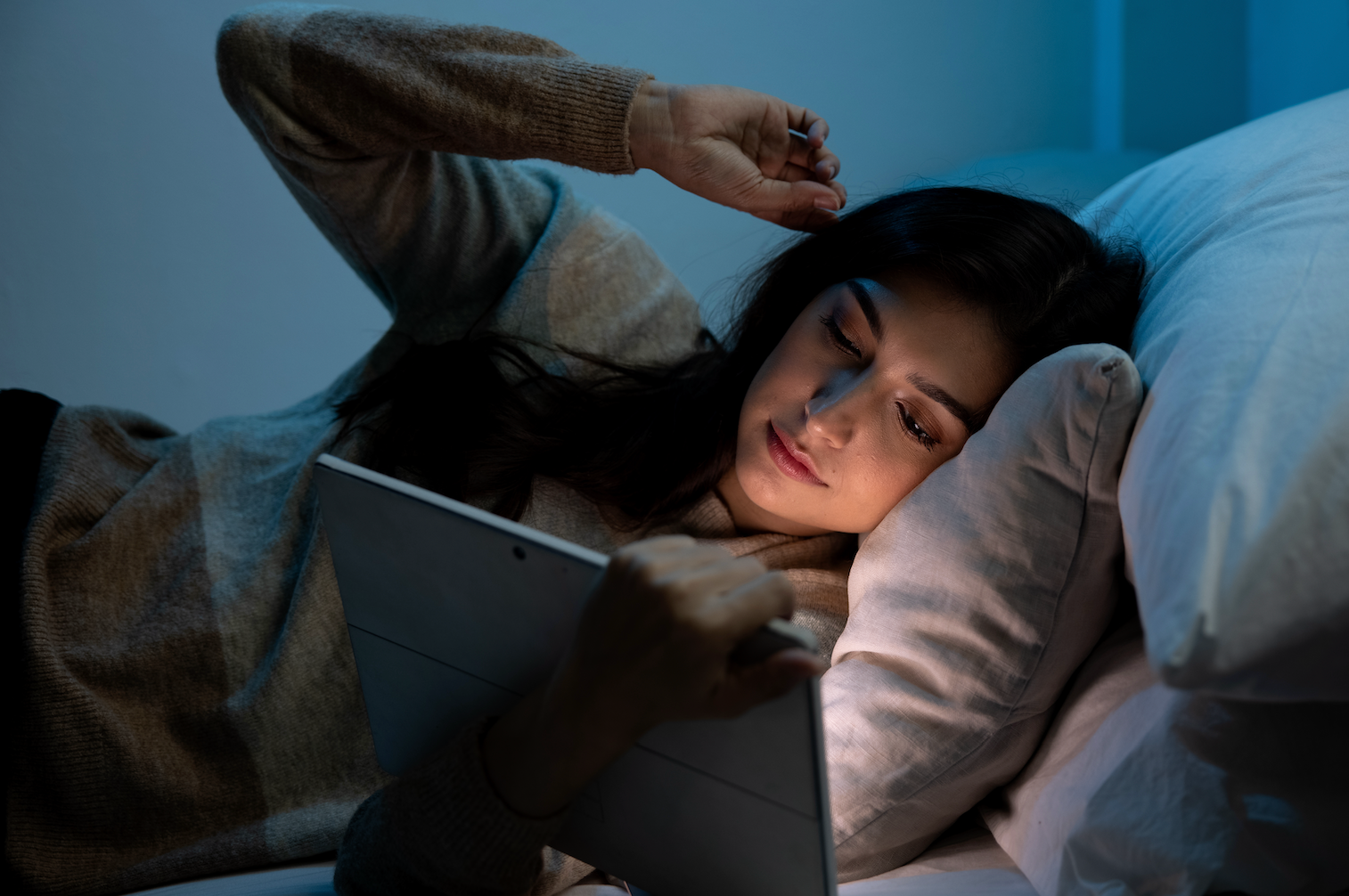There are screens – everywhere. This means that our skin is not only battling the “traditional foes” like UV rays and pollution but also the ubiquitous blue light emanating from our devices. With the rise in the use of smartphones, tablets, and computers, concerns about the potential effects of blue light on our skin have sparked a bit of a buzz in the skincare community. But, is blue light skincare a necessary new frontier, or is it an overhyped concern?
Today, we’re going to dig into that question and explore what science says about the impact of blue light on our skin. Let’s get started.
Understanding Blue Light and Its Sources
Blue light, also known as high-energy visible (HEV) light, is everywhere. It's not just emitted by our digital screens but is also a significant component of sunlight. This pervasive exposure has raised questions about its impact on our skin health, especially considering our increasing screen time. But, is it bad?
Is Blue Light Bad for Your Skin?
The short answer is: it's complicated.
“Although people often associate blue light with computers and phones, the largest source of blue light is sunlight.” - AAO.org
Research into the effects of blue light on skin is ongoing. A common misconception is that the blue light from our screens is as harmful as UV light from the sun. However, the intensity of blue light from devices is significantly lower compared to the sun, so that concern is unfounded. To put it into perspective, you'd have to sit about a foot away from your screen for an entire week to receive the equivalent blue light damage as just one minute in the summer sun. That’s a huge difference.
Comparing Blue Light To UV Exposure
It's crucial to differentiate between the effects of blue light and UV exposure. UV rays are well-known for their harmful effects on the skin, leading to issues like sunburn, premature aging, and an increased risk of skin cancer.
As we mentioned, blue light doesn't cause the traditional sunburn-like effects but may (and we say this really loosely) contribute to skin aging and possibly hyperpigmentation, especially in darker skin tones.
What Are The Effects Of Blue Light On Skin, If Any?
“...frequent exposure to visible light spectrum of the selfie flashes may cause skin damage and accelerated skin ageing.” - 2014 Study
Given the relatively low impact of artificial blue light from screens, it's unlikely to be a significant threat to our skin in everyday scenarios. However, this doesn't mean we should completely dismiss blue light skincare. Those who are at a higher risk, such as individuals with considerable screen time or pre-existing skin conditions, might benefit from proactive skincare measures.
Potential Blue Light Skincare Techniques
For those who really are concerned about blue light exposure, incorporating skincare products that offer protection against HEV light could be beneficial.
Products with antioxidants, like vitamin C and E, may help combat potential damage. Additionally, maintaining a balanced skincare routine, including regular use of sunscreen, can provide broad-spectrum protection against various environmental stressors, including blue light.
In Conclusion
While the fear of blue light damage is probably overstated, it's always wise to be mindful of our skin's health in the face of any environmental factor. Balancing screen time, using appropriate skincare products, and staying updated with the latest research are key to keeping our skin healthy in the age of screens.
For more information on skincare, we recommend you consult with a dermatologist for personalized advice.





















Leave a comment